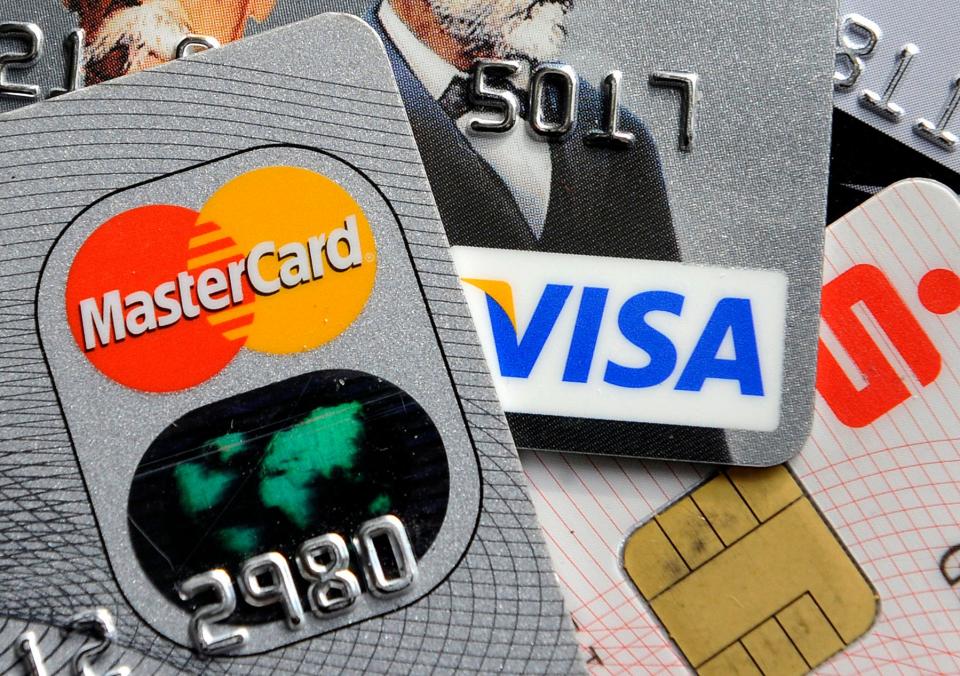5 reasons why the snowball strategy for paying off credit cards works
Debt is a financial drag. But digging out from a blizzard of bills requires a plan no matter what’s happening in your life. The good news is the money you owe doesn’t have to be paid back overnight.
One debt-reduction strategy worth considering is the “debt-snowball” method made popular by personal finance expert Dave Ramsey.
How does it work? You pay off debt in order of smallest to largest, no matter what the interest rate owed on the cards.
So, if you have a Visa with a $150 balance, a Mastercard with a $285 balance and a Home Depot with $415, you’ll tackle the lower-balance Visa debt first. Just pay the minimum payment on the other cards until the Visa’s paid in full.
“It’s a good strategy for the type of person that wants to see some type of progress,” says Daniel Milan, managing partner at Cornerstone Financial Services.
When you knock out your smallest bill, then move on to the card with the next biggest balance. The idea is just as a snowball rolled down a hill gains momentum, so will your bill-paying.

If you’re in debt now, or fear you will be, you’re not alone.
U.S. household debt, including money owed on mortgages, was $14.15 trillion at the end of 2019, according to the Federal Reserve Bank of New York. Money owed on plastic was $930 billion. Last year, the average American household carried a credit card balance of $6,194, according to credit bureau Experian.
Staying cool amid debt woes is key. Executing the debt snowball plan has five key benefits:
1. It’s motivational
Just like success on the job or the golf course can incentivize you to keep improving, so can paying off a bill — even a tiny one — using the debt snowball approach.
“(It) gives you motivation, and motivation is the secret sauce,” Ramsey explains on his web site. “When you pay off that smallest debt first, you get a taste of victory. And that feeling of success is the momentum you need to tackle the next debt with vengeance.”
2. Provides psychological boost
Winning boosts morale. Even knocking out a small bill is good for the psyche, says Chrisanna Elser, a financial planner and founder of personal finance site ThefinU.
Elser says the debt snowball approach “is the most accepted (debt-reduction) method by psychologists because it rewards you for terminating one debt at a time in its entirety. The idea is that the little wins will keep you focused on” your goal of reducing debt.
3. Delivers quicker results
Paying off a small debt likely will take less time than if you target a bigger debt, or one that carries a high interest rate.
“The snowball method is like the Keto diet,” Elser says, referring to the low-carb, high-fat diet that trims fat fast. “The reward center of the brain sees quick results in debt reduction, so you’re more likely to stick with the program.”
4. Creates accountability
Ignoring debt isn’t a plan. Warming up to the debt-snowball approach is a way to stay focused on the task at hand. And to lower your odds of falling off the debt-paydown wagon, says Elser.
“The importance is in the execution and accountability,” she says. “Much like posing a picture of a bikini on the fridge to prevent binge eating, posting your debt repayment schedule in a commonly viewed place, like the laptop you use for Amazon binges, is very helpful.”
5. Begets behavior change
Paying off any debt, even a small one, will get you out of a rut.
“Those in heaps of debt typically are depressed about it and feel there is no way forward,” says Jamie Cox, managing partner at Harris Financial Group. “By starting with small balances, the individual begins to feel the rewards of debt reduction, (and) is behaviorally more motivated” to keep trying to pay off money they owe.
What’s the key to success?
“Sticking to the plan,” says Bryson Roof, investment advisor at Roof Advisory Group, a division of Fort Pitt Capital Group. And that means, if at possible, try not to take on fresh debt.
This article originally appeared on USA TODAY: Debt: Why the snowball method for paying off credit cards works
